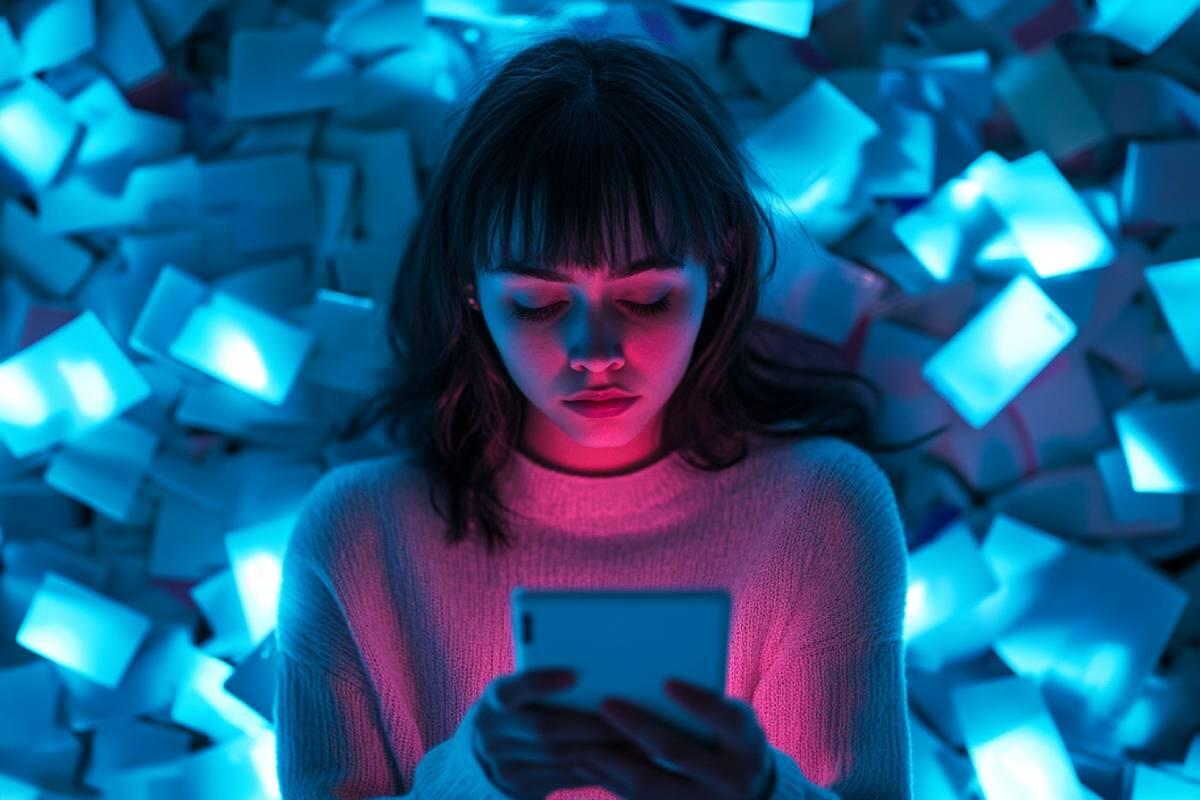Influencers and Consumption Anxiety: How to Filter the Content That Affects You
With the rapid growth of social media, it has become common to closely follow the routines of digital influencers, who often display an apparently perfect lifestyle. This constant exposure to idealized lives can generate feelings of inadequacy and fuel anxiety related to consumption.
Prolonged contact with content that promotes unattainable standards of living has a direct impact on mental health. This article aims to help readers identify emotional triggers and develop strategies to filter the content that truly contributes to their well-being.
What is Consumption Anxiety?
Definition and Characteristics
Consumption anxiety is characterized by a constant feeling of needing to acquire products or services, often driven by social comparison. It arises as an attempt to achieve a perceived standard of life believed necessary for belonging, acceptance, or happiness.
This type of anxiety can lead to impulse buying, recurring frustrations, and a persistent sense of inadequacy that affects both emotional and financial balance.
Impact of Social Media
Social media intensifies this phenomenon by daily promoting products, trips, clothing, and luxury experiences through influencers. Constant exposure to this type of content stimulates a sense of urgency and the feeling of being left behind.
Over time, this continuous comparison can lead to frustration, low self-esteem, financial imbalance, and even episodes of compulsive buying — all based on a lifestyle ideal that is often fictional.
How Influencer Content Can Affect Your Mental Health
Unrealistic Expectations and Unattainable Standards
Many social media posts are carefully edited and staged to appear spontaneous and perfect. Although visually appealing, they create unrealistic standards of beauty, success, and happiness that are difficult to achieve in everyday life.
Trying to live up to these standards generates emotional stress, frustration, and a constant feeling of inadequacy. Comparison becomes a vicious cycle that directly affects self-esteem and emotional well-being.
Triggers for Compulsive Behaviors
Anxiety triggered by online content can lead to impulsive behaviors, such as making unnecessary purchases to fill emotional voids. This creates a cycle of momentary relief followed by guilt, which further intensifies anxiety.
Moreover, it impacts the perception of personal value: when a person cannot replicate the idealized lifestyle they see online, they may feel like a failure or feel inferior.
How to Filter the Content That Affects You
Reevaluate Who You Follow
Doing a "digital cleanup" is essential for protecting mental health. If certain profiles generate excessive comparison, insecurity, or discomfort, it’s important to unfollow them, even if they are popular or admired.
Instead, prioritize following accounts that promote authenticity, well-being, and balanced lifestyles, sharing real vulnerabilities and encouraging self-care and self-esteem.
Set Limits for Social Media Use
Setting specific times for using social media helps avoid excessive exposure to emotional and visual triggers. Screen time control apps and turning off unnecessary notifications can also be very helpful.
Taking regular digital breaks allows you to reconnect with yourself, reduce anxiety, and foster a healthier relationship with technology.
Develop Critical Thinking
Not everything posted on social media reflects reality. Many posts are part of well-crafted marketing strategies. Questioning the purpose behind the content — whether it’s educational, inspirational, or purely commercial — helps maintain emotional distance.
Recognizing the intentions behind promotional content strengthens emotional autonomy and allows for more conscious and healthier consumption decisions.
The Importance of Digital Self-Care
Taking care of emotional health also involves monitoring the content we consume in the digital environment. Digital self-care means consciously choosing the type of information and imagery we allow into our minds.
Reducing time spent exposed to harmful content and replacing it with positive activities — such as reading, meditation, or physical exercise — greatly contributes to mental and emotional well-being.
When to Seek Psychological Help
When consumption anxiety starts affecting sleep, mood, financial stability, or personal relationships, it’s time to seek professional support. These symptoms indicate that the content being consumed is significantly affecting emotional health.
Psychotherapy provides a safe space to understand the causes of these behaviors, develop coping strategies, and rebuild self-esteem on more solid and authentic foundations.
Conclusion
We live in a hyper-connected world, but it is possible to regain control over our relationship with digital content. Digital influence is powerful, but the power to choose what to consume and how to interpret it remains ours.
Filtering content consciously is an act of self-care and emotional preservation. Choosing carefully who you follow is just as important as choosing who you allow into your life offline.
Have you reflected on how the content you consume on social media affects your emotional well-being and purchasing decisions?
At Clinic Consultation, we offer online psychological support to help you manage consumption anxiety and build a healthier relationship with the digital world.
Schedule your session today and take the first step toward stronger, more conscious emotional health.
https://www.clinicaconsulta.com.br/
